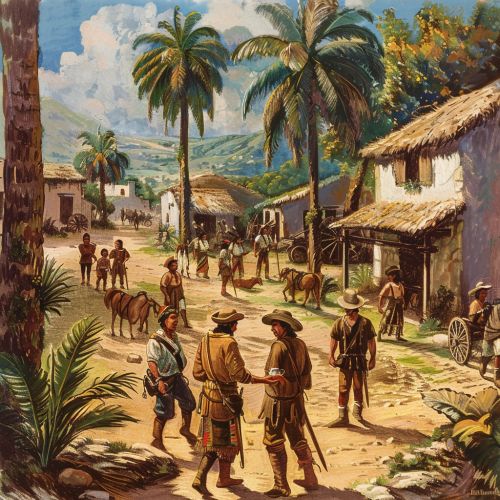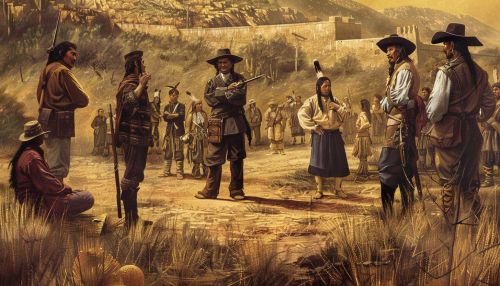Encomienda
History
The Encomienda system was a labor system that was employed mainly by the Spanish Crown during the colonization of the Americas and the Philippines. The system was used to regulate Native American labor and behavior during the colonization period. It was adapted from the feudal system in Medieval Europe, where a lord would offer protection to his subjects in return for their service.


In the early 16th century, the Spanish Crown granted a number of Native Americans to particular colonists, known as encomenderos. These encomenderos were tasked with Christianizing the Native Americans, teaching them the Spanish language, and integrating them into the Spanish colonial society. In return, the encomenderos were allowed to extract labor and tribute from the Native Americans.
Structure and Function
The encomienda system was not a form of slavery, as the Native Americans under the system were not property. They were considered free subjects of the Spanish Crown, and the encomienda was a grant of their labor, not a grant of their person. However, the system was often abused, and the conditions under which the Native Americans worked were often harsh and inhumane.
The encomienda system was structured in such a way that the encomendero was responsible for the welfare of the Native Americans under his care. He was required to provide them with food, clothing, and shelter, and to instruct them in the Christian faith. In return, the Native Americans were required to provide labor and tribute to the encomendero.
Impact and Legacy
The encomienda system had a profound impact on the societies of the Americas and the Philippines. It led to the widespread displacement and exploitation of Native American populations, and contributed to the rapid decline of their numbers due to disease, overwork, and mistreatment.
The system also played a significant role in the development of the Spanish colonial economy. The labor and tribute extracted from the Native Americans under the encomienda system were used to support the Spanish colonial administration and to finance the exploration and colonization of new territories.
Despite its negative impacts, the encomienda system also had some positive effects. It facilitated the spread of Christianity and the Spanish language among the Native American populations, and it helped to integrate these populations into the Spanish colonial society.
Abolition and Aftermath
The encomienda system was officially abolished by the Spanish Crown in the late 18th century, following a series of reforms aimed at improving the treatment of Native Americans under Spanish rule. However, the system continued to exist in practice in some areas until the early 19th century.
The abolition of the encomienda system marked the end of a significant chapter in the history of the Americas and the Philippines. However, its legacy continues to be felt today, in the form of social and economic inequalities, and in the ongoing struggles of Native American populations for recognition and justice.
